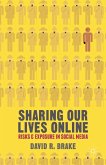Please note that the content of this book primarily consists of articles available from Wikipedia or other free sources online.Reputation is the opinion of the public toward a person, a group of people, or an organization. It is an important factor in many fields, such as education, business, online communities or social status. Reputation can be considered as a component of the identity as defined by others. Reputation is known to be a ubiquitous, spontaneous and highly efficient mechanism of social control in natural societies. It is a subject of study in social, management and technological sciences. Its influence ranges from competitive settings, like markets, to cooperative ones, like firms, organisations, institutions and communities. Furthermore, reputation acts on different levels of agency, individual and supra-individual. At the supra-individual level, it concerns groups, communities, collectives and abstract social entities (such as firms, corporations, organizations, countries, cultures and even civilizations). It affects phenomena of different scale, from everyday life to relationships between nations. Reputation is a fundamental instrument of social order, based upon distributed, spontaneous social control.








